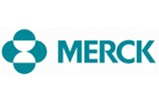Merck Asthma Drug Gets Wind Knocked Out Of It

Merck & Co.'s (MRK) allergy and asthma drug Singulair is the most prescribed product in the U.S. respiratory market, and last year it cracked the list of the Top 10 best-selling prescription drugs in the world. But sales have been wheezy this year, hurt by a light allergy season, competition from new products and safety concerns. Merck recently lowered its forecast for full-year Singulair sales. Also looming: the expiration of Singulair's U.S. patent in 2012 and the potential for a generic challenger before then.
THE DRUG: Singulair is a tablet taken once a day for prevention or treatment of asthma, or for relief of allergy symptoms. It works by blocking the effects of leukotrienes, substances that cause problems associated with asthma and allergies.
Approved by the Food and Drug Administration in February 1998, Singulair costs about $97.24 for a 30-day supply of 10-milligram tablets, Merck said. Its active ingredient is montelukast sodium.
THE OPPORTUNITY AND CHALLENGE: The global market for respiratory agents rose 12% last year to $28.6 billion, making it the third biggest drug category by sales, according to prescription-data tracker IMS Health.
But it's a crowded market populated by generic and over-the-counter options. In January, Johnson & Johnson (JNJ) began selling an over-the-counter version of Pfizer Inc.'s (PFE) Zyrtec allergy medication. Sales have been strong, cutting into sales of Singulair. Also, in March, the FDA said it was probing a potential link between Singulair use and suicidal behavior, following Merck's update of the drug's prescribing label to include reports of such behavior in users. Merck said the label change was based on a "very limited number of post-marketing adverse event reports."
PRESCRIPTIONS: 2.1 million U.S. prescriptions were written for Singulair in June for a 13.3% share of the asthma and allergy market, according to drug-data provider Verispan.
SALES: $1.1B in the second quarter, down 1% from a year earlier. Singulair had sales of $4.27B for full-year 2007, up 19% from 2006. In late July, Merck lowered its forecast of 2008 sales to a range of $4.4B to $4.6B from its previous view of $4.6B to $4.8B.
THE COMPETITION: Top branded rivals include GlaxoSmithKline PLC's (GSK) Advair - sold outside the U.S. as Seretide - which had 2Q sales of $1.9B, up 11% from a year earlier, and a 9% share of U.S. allergy/ashthma prescriptions for June. AstraZeneca PLC's (AZN) Symbicort, which went on sale in the U.S. last year, had 2Q sales of $518M, up 25%. Several generics are among the most prescribed, including fluticasone, albuterol and fexofenadine.
THE MARKETING: Merck said in June it extended its television advertising for Singulair because of the allergy season was running later into spring. Merck is offering $20 coupons on prescriptions on the Singulair Web site.
WHAT MERCK SAYS: "Recent weekly domestic performance for Singulair has shown signs of improvement relative to the growth of the overall respiratory market, and we are taking additional steps to further support the brand." - Kenneth Frazier, president of Merck's global human health unit, July 21.
WHAT ANALYSTS SAY: "There were three distinct factors pressuring Singulair demand this year - the availability of OTC Zyrtec, the delayed start and short duration of the spring allergy season, and the recent label changes that resulted in the issuance of an early communication by FDA, citing the possible association between Singulair use and behavior/mood changes, including a potential link to suicide." - Deutsche Bank analyst Barbara Ryan, Aug. 4.
WHAT'S NEXT: The FDA's review of Singulair's safety is expected to be completed by the end of the year, after which the agency will announce its conclusions and recommendations. A 30-month stay on FDA approval of Teva Pharmaceutical Industries Ltd.'s (TEVA) proposed generic version of Singulair is expected to expire around October 2009. Merck has filed a patent-infringement action against Teva and the case is pending.
SOURCE: Merck & Co
